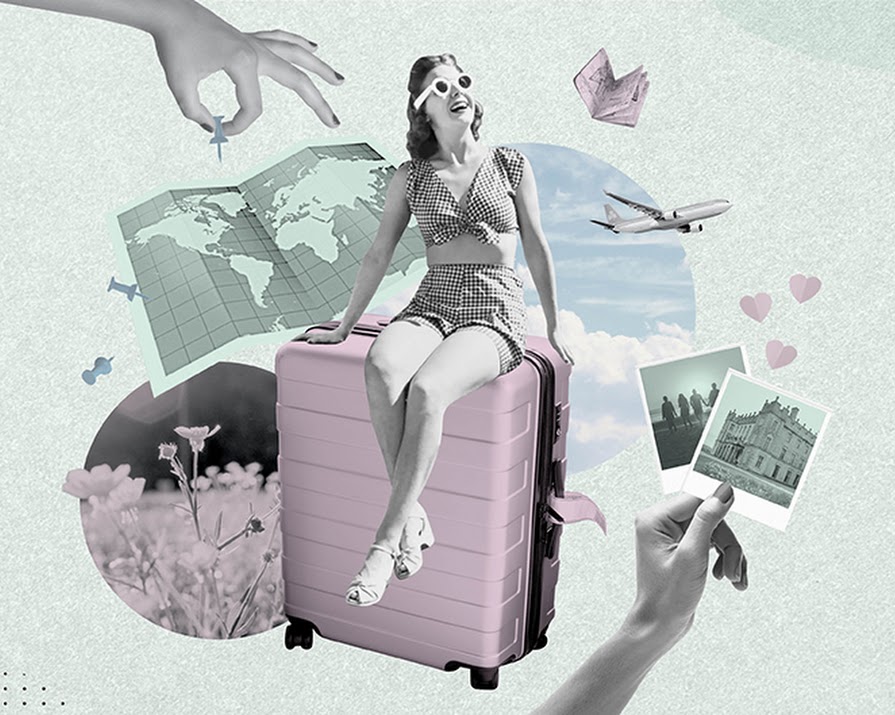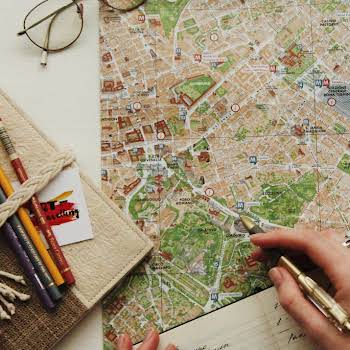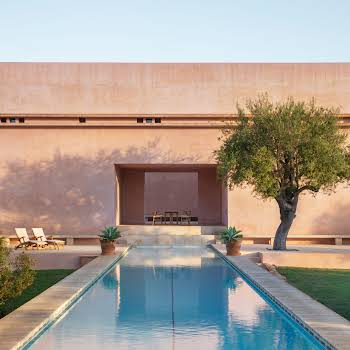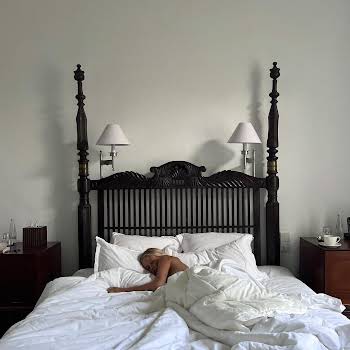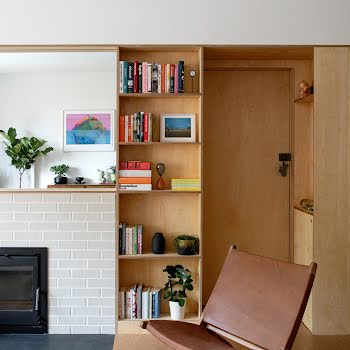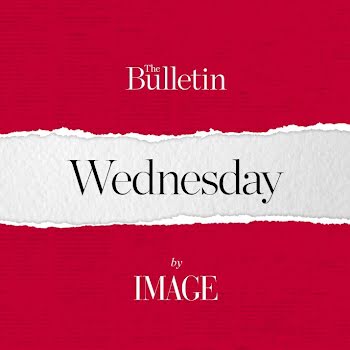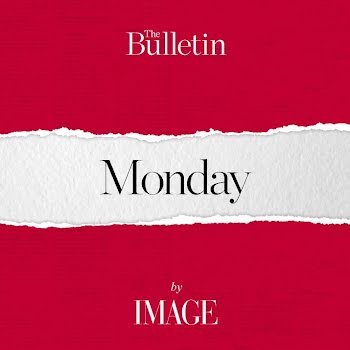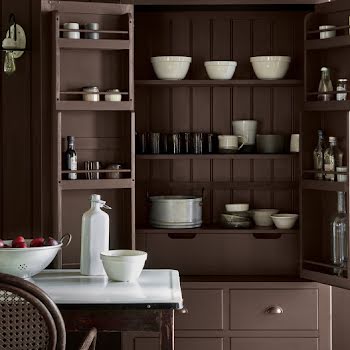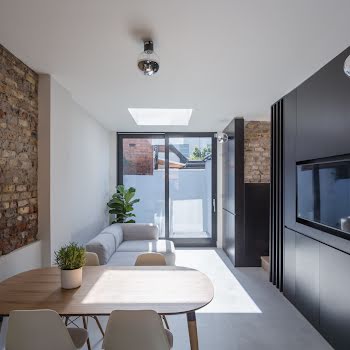
IMAGEWrites: the trend for slow, responsible travel is only set to accelerate
By Lucy White
05th Jul 2020
05th Jul 2020
For many, the notion of a holiday has been transformed by the pandemic. With ample time to reflect on our needs, we’ve realised it’s less about where you go but who you spend it with – and how
I’ve not checked into a hotel since February 27, which, for the average reader maybe isn’t so long ago. But for a travel editor, it’s a lifetime. I’ve been with Cara magazine, the inflight publication for Aer Lingus, for seven years, during which I’ve never gone this long without an overnight stay. And I’ve nothing booked until September – exotic Carlow.
This is not a humblebrag. Nor am I trying to elicit sympathy: boo hoo, poor little travel editor is stuck at home like the rest of us civilians. But it does mean I know a thing or two about travel and tourism – and that we desperately need it on every level.
What could be better than alternating a frothy pint of Guinness with silken Kellys oysters in a Galwegian beer garden?
Tourism is the Republic of Ireland’s largest indigenous industry, delivering €1.7bn in exchequer revenue, which equates to €1,000 per household. In 2018, the island of Ireland welcomed 11.2 million overseas visitors; meanwhile domestic tourism expenditure in the Republic amounted to €2 billion, making for a €9.4 billion total industry.
And, aside from the clear economic advantages: what could be better than alternating a frothy pint of Guinness with silken Kellys oysters in a Galwegian beer garden or slipping between the soft, white sheets of a bed someone else has made while breathing in the views of the Celtic Sea?
Home sweet Stockholm
But we also want the world, after having bounced off the same four walls for so long. We know the government’s list of “travel bridges” will cause disruption and frustration every fortnight, and that we’re meant to support the local economy… yet we yearn for a total change of scenery in the world as we remember it: sun-kissed, sea-salt skin in the South of France; a blush-coloured rosé in a pastel, Amalfi hamlet; punchy pintxos in a Madrid food market; a brain-rattling colada from a counter in Miami; speakeasies in Chicago; lavender farms in Washington State…
All the while we recognise the fear of leaving our own homes after careful quarantine. Something resembling Stockholm Syndrome has thwarted our intrepid ambitions. We’ve found reassurance in arbitrary domestic rituals, in our own company and the touch-points we’ve forensically scrubbed. Can we really trust cleaning services, air sanitation systems and Other People? Indeed we must, if we’re to ever get out of this place (to paraphrase the Animals).
But how, not where, we spend our leisure time is arguably the bigger question. We’ve no choice but to think deeply about not what we want, but what we need, as the industry tentatively reawakens.
Tourism traps
When the clock struck midnight on January 1, 2020, no one could’ve predicted we’d be confronted with more profound concerns this summer than a) which sunscreen to buy or b) how many bottles of cerveza can I feasibly drink in one sitting without repeating my paella all over my new Batoko swimsuit.
Despite the astonishing queues when Penneys first reopened suggesting otherwise, many consumers are reconsidering fast fashion and being more mindful about which brands to align themselves with. On top of our social responsibility, it’s a known fact that 80 per cent of the world’s textiles end up in landfill or incineration.
Similarly, we know that mass tourism can destroy entire communities and ecosystems, and so we sympathise with locals in the likes of Venice, Barcelona, Amsterdam and Rome, who simply cannot cope with the colossal number of tourists tramping the same landmarks day after day, snaffling short-term Airbnb properties while locals are priced out into the suburbs.
To experience the world singularly through one’s phone does not #mindfulness make. It is the polar opposite: it is mindless tourism
Social media, too, has much to answer for, enabling a voracious appetite for that definitive, off-the-beaten-track selfie, resulting in irresponsible behaviours to shock even Narcissus himself, such as millennials falling off cliffs or trespassing on private property in pursuit of the “perfect” travel photo. What these imbeciles masquerading as “woke” global citizens neglect to realise – because they’re too busy trying out 100 different angles and 50 different pouts – is that these beauty spots are precisely perfect without them in it. To experience the world singularly through one’s phone does not #mindfulness make. It is the polar opposite: it is mindless tourism.
The science of scenery
I’m not suggesting we all join a kombucha-knitting, off-grid kibbutz for our next vacation. But the trend for slow, responsible travel is only set to accelerate now that our eyes have reopened to the joys of nature. Where once hiking or wild swimming was considered niche has now become a mainstay for those bitten by the bug during the long, hard lockdown, and who will incorporate them into future trips away.
On our daily lockdown rambles, we’ve inadvertently (re)discovered the benefits of mycobacterium vaccae, a harmless bacteria commonly found in soil that can act as a natural antidepressant, by increasing the release and metabolism of serotonin. We’ve learned that shinrin-yoku, or “forest bathing,” isn’t exclusive to the Japanese but can uplift us all. It’s science and it’s beautiful.
We’ll be adding more parks, greenways, woodlands, cliffs and hillsides on to our holiday wish-lists, and less concrete jungles
We all want our gyms to thrive again, of course, but can pounding away on a treadmill or exercise bike really compete with the rush of their open air counterparts? Now we’ve re-tuned into the great outdoors – perhaps for the first time since childhood – we’ll be adding more parks, greenways, woodlands, cliffs and hillsides on to our holiday wish-lists, and less concrete jungles.
Value redefined
And for health and safety reasons, too. The days of crowding around a masterpiece in a destination museum or piling on to trams during rush hour are over for the foreseeable; we’ve no choice but to consciously spread out and uncover what lies beyond high-density cities. This means a fairer redistribution of wealth across less affluent regions – another bonus.
Jobs – lives – have been lost, furloughed, reduced, mortgages and rents deferred, with more economic consequences to come. Those who are lucky, and determined, enough to afford a holiday will redefine “value” from what we might save fiscally to what we might gain holistically.
It will mean quality over quantity – less frequent travel offset by time and money spent more wisely. We’ll relish what we once took for granted, as if experiencing it for the first time, from being asked “are you ready to order?” at breakfast, to watching the sun melt into the Mediterranean Sea. Even the tedium of packing, or tapping in a new GPS destination, will take on a newfound novelty status.
Destination transformation
Two days before the April/May issue of Cara magazine was scheduled to go to print, it was pulled; the country went into lockdown the following Monday. Six weeks of production – finessing beautiful summer holiday editorials to entice and inspire – amounted to nothing but impotent proof pages and a leaden fear for the future.
But in the words of author Henry Miller, one’s destination is never a place, but a new way of seeing things. When and where we get to recharge our batteries will be nothing short of a revelation. We survived. We deserve this. We so deserve this.
Carlow isn’t Mustique. However, a change is as good as a rest, and, all being well, my September trip will include a gaggle of nine friends: mums, mostly, who have been juggling working from home with schooling their young children. That we’re going to the always-brilliant Borris Festival of Writing and Ideas is almost an afterthought. It’s the being together after so long apart that’ll be worth its weight in gold.
Read more: Long read: Irish hotels reopened – what to expect in phase three
Read more: IMAGEWrites: I was supposed to meet a friend in Paris. Instead I wore a beret and drank rosé on Zoom
Read more: 11 of the best staycation options on offer in Munster this summer











